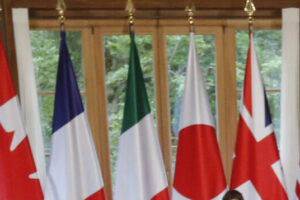JRL NEWSWATCH: “How can democracies respond to rigged elections?” – The Economist

“A host of Western countries reject the results of Russia’s sham election”
“… Long before the first ballot was cast, it was clear … Putin, … dictator since 1999, would win by a predetermined, overwhelming majority. … Voting … was strictly supervised. In illegally occupied parts of Ukraine, voters cast their ballots at gunpoint. [] Putin faced no credible opponents: most of Russia’s opposition is in exile, in jail or dead. … Roughly a third of the world’s countries are run by authoritarian regimes [with] flawed elections. Dictators use them to claim legitimacy and reward citizens for loyalty. They may secure victory by lying about the result, rigging the electoral system and media coverage in their favour, harassing the opposition, coercing voters or bribing them with handouts. … Democracies may refuse to recognise the results of rigged elections … but the impact on dictators is often negligible, even … with sanctions. … All too often foreign governments ignore dodgy electoral tactics …. The West’s reputation as a defender of democracy is wearing thin, just as democracy is becoming rarer …. And recognising illegitimate rulers can damage democratic opposition movements. …”
